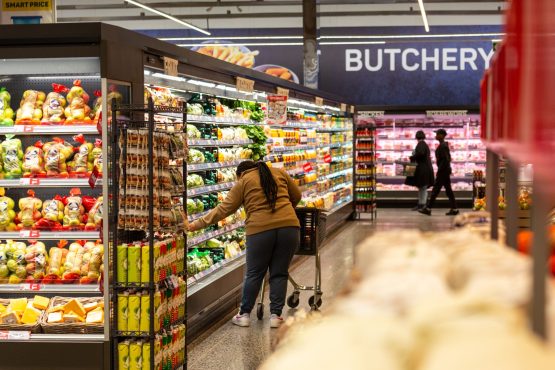Pick n Pay misses dividend estimates as power costs increase

Pick n Pay missed dividend estimates as South Africa’s third-largest grocer incurred extra costs to keep the lights on at its stores amid nationwide load shedding. Lower profits and implementation of the Ekuseni turnaround plan also weighed on the group’s financials.
A dividend of R1.85 a share was declared for the 12 months ended February 26, the Cape Town-based company said in a statement on Thursday. That compared with a R1.92 median estimate of eight analysts surveyed by Bloomberg. Sales rose 8.9% to R106.6 billion.
Last year, the grocer announced a three-year target of R3 billion in savings, even as it faces inflationary pressures and the increased cost of adding standby generators, rooftop solar panels and refrigerated trailer trucks as the country grapples with the worst levels of load shedding on record.
Shareholders should also expect a smaller cut of the group’s profits starting in the 2024 financial period as Pick n Pay looks for liquidity to support its Ekuseni turnaround strategy which was launched in May 2022.
“The new policy will contribute towards the group having the necessary balance sheet flexibility to support the elevated capital expenditure required by the Ekuseni plan. The cover will likely tend towards the upper end of the range over FY24 and FY25. The group notes that the upper end of the cover range remains broadly in line with the FY22 (fixed) covers of its retail peers.”
Pro forma headline earnings per share (Heps), which also contributed to the lower dividend cut for shareholders, was 16.3% lower this period at 242.37 cents, down from 289.64 cents.
The dramatically lower figure “excludes the R145.2 million business interruption insurance proceeds received and accounted for in FY23, but previously included in FY22 pro forma earnings as it relates to losses incurred during FY22”.
Cost savings
During the year under review Pick n Pay managed to save R800 million from Project Future, limiting the group’s trading expense increases to R20.2 billion, 11.9% higher than during the previous period.
Group turnover came in 8.9% higher, to R106.6 billion, while trading profit increased 5.6% to R3.04 billion – pro forma trading profit decreased by 4.3% to R2.90 billion.
Despite the difficulties the group has faced in the past year, investors should be encouraged that the group has managed costs, kept internal food price inflation lower than CPI and that the group has launched its Ekuseni plan, said Boone, adding that the group remains on course.
“Ekuseni is the right plan for Pick n Pay and the right plan for South Africa. We are rejuvenating our PnP brand into PnP and PnP QualiSave to better serve customers with a more tailored customer value proposition. We are accelerating our Boxer and Clothing growth engines to give customers greater access to these winning brands. Our omnichannel and digital offerings are delighting more customers and will provide a strong runway for growth in the coming years,” Boone added.
According to the CEO, Pick n Pay is accelerating its energy resilience plan to mitigate the costs of load shedding. In this period alone, the grocery retailer reportedly spent an incremental amount of R522 million on diesel to run its generators and on planned costs to implement the Ekuseni project.
“But I also ask our stakeholders to look through these costs as far as possible – to see the real underlying progress we are making in delivering our Ekuseni plan. It is going to be another tough year. But I have every confidence in our plan, and in the ability of our teams to deliver it,” Boone said.
Pick n Pay’s stock has dropped 28% this year, while the benchmark index has climbed. Shoprite Holdings, the country’s largest grocer, has declined 3.7%.

